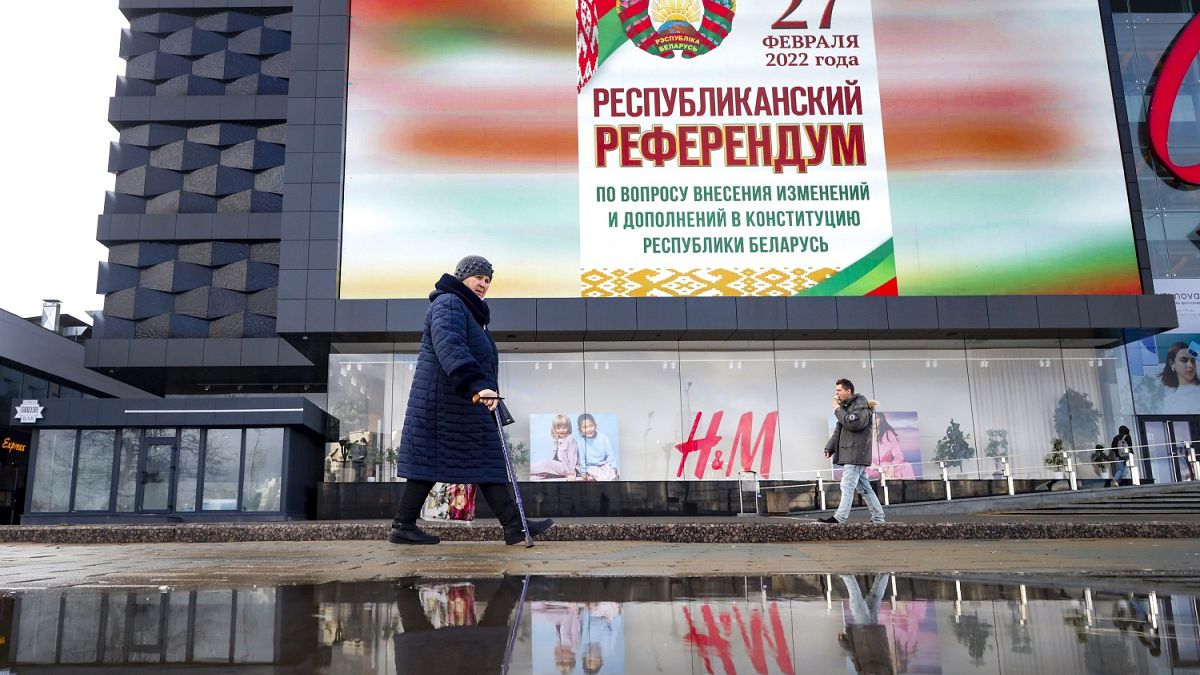Opposition leader Sviatlana Tsikhanouskaya told Euronews that the result was a "threat" to the whole of Europe.
Belarus has controversially voted to remove the country's nuclear-free status amid Russia's invasion of Ukraine.
The country's central elections commission said that 65.2% of those who took part in the referendum voted in favour of adopting a new constitution.
The revised law could strengthen the powers of the All-Belarusian People’s Assembly -- a distinct congress gathering the government, industry leaders and other top officials -- and cement the 27-year power grip of authoritarian President Alexander Lukashenka.
It could also see nuclear weapons on Belarusian soil for the first time since its independence from the Soviet Union in 1991.
Western governments have already said they would not recognise the result of the referendum, amid a continued crackdown on Belarus' opposition.
An estimated 800 people were arrested in anti-war protests across the country following the referendum on Sunday, according to human rights groups.
It was the largest demonstration in Belarus since Lukashenka's disputed re-election in August 2020. The opposition denounced the ballot as rigged.
Lukashenka has recently offered the country's territory to its ally Russia as it invades Ukraine.
"If [the West] transfers nuclear weapons to Poland or Lithuania, to our borders, then I will turn to [Vladimir] Putin to bring back the nuclear weapons that I gave away without any conditions," Lukashenka said on Sunday.
Russia had already deployed forces to Belarusian territory under the pretext of military drills and then sent them rolling into Ukraine.
Ukrainian President Volodymyr Zelenskyy has rebuked Belarusians for allowing their country to be used as a staging ground for the Russian invasion.
European Union foreign policy chief Josep Borrell said the vote result is "very dangerous" because it will allow Russia to "station nuclear weapons" on its territory.
"We know what it means for Belarus to be nuclear," Borrell told reporters on Monday. The bloc has already imposed tough new sanctions on Minsk for facilitating Russian troops.
The new constitution allows Lukashenka to stay in office until 2035 and will also give the president lifetime immunity from prosecution once he leaves.
Belarus' exiled opposition leader Sviatlana Tsikhanouskaya told Euronews that the new constitution could be a "huge threat to the whole of Europe".
"I'm so proud that Belarusian people -- despite two years of repressions -- managed to go out onto the streets [...] to show our support for the Ukrainian people."
"We are against our country being dragged into this conflict," she added.
Tsikhanouskaya also told Euronews that the referendum was held at a time when Lukashenka was "weak" and "fragile".
Click on the player above to watch the full interview with Sviatlana Tsikhanouskaya.


